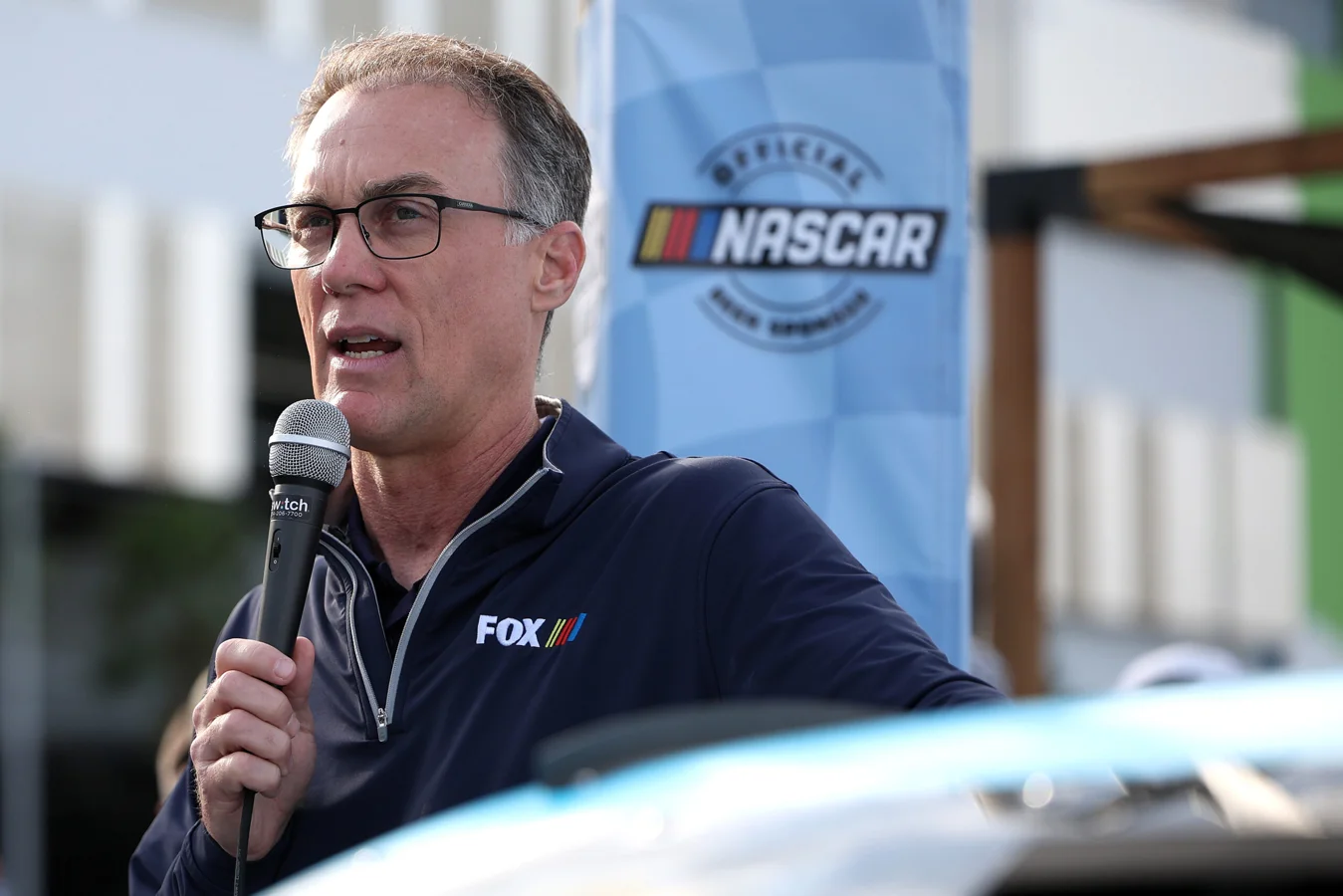Former NASCAR Cup Series champion Kevin Harvick has spoken out with sharp criticism, highlighting what he sees as a troubling decline in the pace of Cup cars after an ARCA Menards Series entry outperformed the entire Cup field in qualifying at Iowa Speedway. Kevin Harvick criticizes slow NASCAR Cup cars, calling the situation dire compared to performances by lower-level series and raising broader questions about the direction of NASCAR’s premier racing division.
ARCA Car Surpasses Cup Series in Qualifying at Iowa Speedway
Harvick’s discontent was broadcast in a recent HarvickHappyHour clip, where he expressed deep concern about the current speed of NASCAR’s top cars. He referenced a remarkable incident at Iowa Speedway, where Brent Crews, competing in the developmental ARCA Series, posted a qualifying lap of 22.901 seconds—outpacing every Cup Series driver at the event. The best Cup Series effort, from Chase Briscoe, registered a slower lap of 23.004 seconds. This lap time comparison put the spotlight on what Harvick views as a glaring failure of the Cup Series cars to keep up with their intended status as the fastest stock cars in NASCAR.
As Harvick bluntly stated,
“The cup cars need to go way faster. Especially at the short tracks, and I don’t think there was anything more evident than this weekend. The ARCA car outqualified the Cup car, and was extremely difficult to pass,”
—Kevin Harvick, Champion. He followed with,
“In the end, cars are so damn slow, they don’t race good,”
—Kevin Harvick, Champion. These comments enforced just how serious he feels the issue has become—and pointed to the ARCA Series as inadvertently exposing the weaknesses of the Cup Series platform.
NASCAR’s Next Gen Car Draws Criticism for Reduced Power
According to Harvick and many observers, the roots of these performance issues trace back to the introduction of the Next Gen car in 2022. With the debut of the new model, horsepower was cut dramatically. The previous Gen-6 cars could deliver close to 900 horsepower, but the Next Gen vehicles are restricted to just 670 horsepower, and at certain venues like short tracks, power is sometimes pared back even further to 510 horsepower. This significant reduction has led to concerns among competitors and fans that the Cup Series is losing its reputation for speed and spectacle—especially when compared with cars from series that were never meant to exceed Cup benchmarks.
Barriers for Rookie Drivers and Concerns About NASCAR’s Future
Beyond the lack of speed, Harvick is equally frustrated with the environment faced by rookie drivers. He believes the structure of the Cup Series and the ongoing reluctance of teams to provide adequate test sessions have created formidable obstacles for newcomers trying to make their mark. Harvick pointed to drivers such as Katherine Legge, a veteran in IndyCar and Formula E, who has struggled to adjust due to limited hands-on experience with NASCAR’s unique vehicles. He argues that the lack of frequent, meaningful testing makes the Next Gen cars especially hard for rookie drivers to adapt to, which ultimately damages the pipeline of fresh talent entering the sport.
On the podcast, Harvick said,
“The teams don’t want to do anything to spend money. And that’s a fact.”
—Kevin Harvick, Champion. He argued this frugality is not just impacting the current field but also stalling the growth and competitiveness fundamental to NASCAR’s ongoing appeal. Furthermore, Harvick claimed the Charter agreement system has given teams too much power to resist change, even when those changes could benefit the series as a whole. If NASCAR had more freedom to make decisive, performance-based adjustments without pushback from team interests, Harvick believes progress would be much easier to achieve.
Ongoing Impact and Call for Change in NASCAR
The debate sparked by Harvick’s criticism touches every stakeholder, from drivers and teams to league executives and sponsors. Slow Cup cars and a lack of developmental opportunities pose challenges to both the sport’s top-tier image and its ability to foster future champions. Unless NASCAR and its participating organizations address not only the car’s performance specs but also systemic hurdles facing rookie drivers, the series risks diminishing its competitive edge and long-term relevance.
The events at Iowa Speedway underscored just how far the Cup Series has drifted from its roots as a proving ground for speed and innovation. Observers will be watching closely to see if leaders within NASCAR, supported (or pressured) by championship drivers like Kevin Harvick, choose to respond with decisive reforms to restore pace and nurture the next generation of stars.
